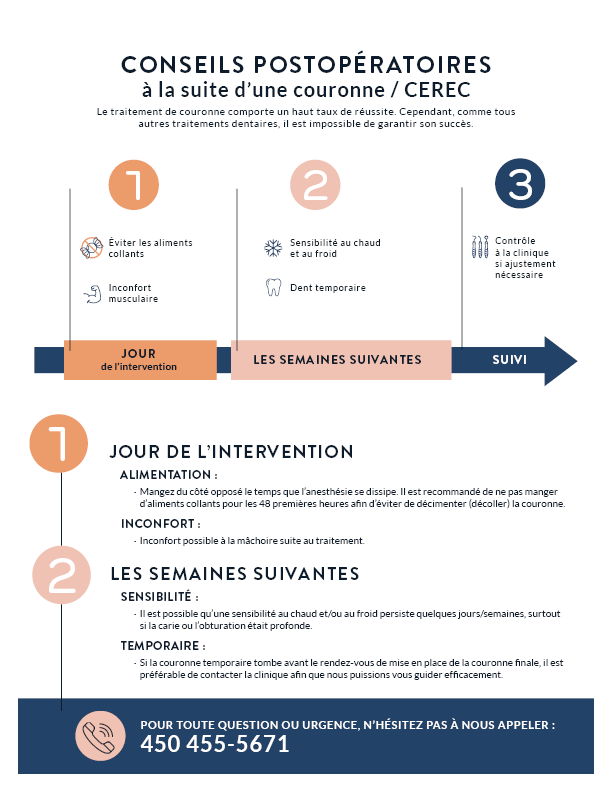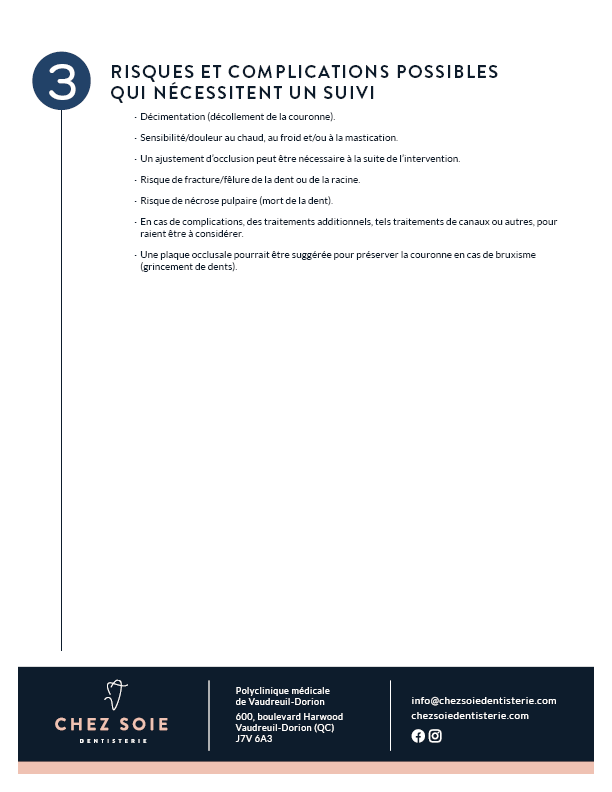 Crowns
Crowns
A crown can be used to restore the shape, appearance and function of damaged teeth. The placement of a crown may also be necessary following root canal treatment or if the tooth has suffered a fracture or has a large filling.
What is a crown?
A crown is a hollow artificial tooth that is used to cover a damaged or decayed tooth. The crown restores the tooth and protects it from further potential damage. Crowns can also be used to cover discolored or misshapen teeth. The appearance and function of a tooth covered by a crown is very similar to that of a natural tooth.
How do you make a crown?
First, your dentist will give you a local anesthetic.
To make room for the crown, he removes, by grinding away with a special handpiece, part of the tooth to be restored.
He then takes an impression of the cut tooth and the surrounding teeth. This impression will be used to make the permanent and final crown to measure using restorative materials (materials used for fillings). The permanent crown will be perfectly adapted to the shape of your mouth.
While waiting for the final crown to be made, your dentist places a temporary crown on the restored tooth. This crown is made from an impression that was taken before the initial cutting of the tooth, and it aims to protect the tooth while waiting for the final crown. The shape and color of the temporary crown may differ from that of the permanent crown.
During the next visit, your dentist replaces the temporary crown with the permanent crown. He checks the fit, shape, color and occlusion. If the dentist is satisfied, he or she then secures the final crown in place using dental cement.
What is a CEREC crown?
The Chez Soie dental clinic also offers the CEREC crown service. This system, at the cutting edge of technology, allows us to save a few steps and the possibility of offering you the crown service in ONE appointment. Using an optical impression and a grinding wheel, the crown is carefully manufactured and fired directly on site, saving your precious time and avoiding a second appointment.
Crowns are durable and, in general, can last in your mouth for many years if you take good care of them. Under optimal conditions, it is not uncommon to see crowns still intact 10 years later. You should brush and floss them just like you do your natural teeth. Crowns, like natural teeth, can be fragile. It is therefore essential to avoid biting into hard objects or using your teeth to open or cut other objects.




